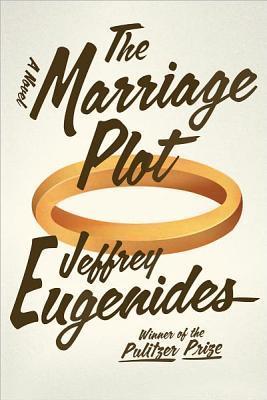More on this book
Community
Kindle Notes & Highlights
She’d become an English major for the purest and dullest of reasons: because she loved to read.
That left a large contingent of people majoring in English by default. Because they weren’t left-brained enough for science, because history was too dry, philosophy too difficult, geology too petroleum-oriented, and math too mathematical—because they weren’t musical, artistic, financially motivated, or really all that smart, these people were pursuing university degrees doing something no different from what they’d done in first grade: reading stories. English was what people who didn’t know what to major in majored in.
In Saunders’s opinion, the novel had reached its apogee with the marriage plot and had never recovered from its disappearance. In the days when success in life had depended on marriage, and marriage had depended on money, novelists had had a subject to write about. The great epics sang of war, the novel of marriage. Sexual equality, good for women, had been bad for the novel. And divorce had undone it completely.
“There is no happiness in love, except at the end of an English novel.”
how do you write about something, even something real and painful—like suicide—when all of the writing that’s been done on that subject has robbed you of any originality of expression?”
She wanted a book to take her places she couldn’t get to herself. She thought a writer should work harder writing a book than she did reading it. When it came to letters and literature, Madeleine championed a virtue that had fallen out of esteem: namely, clarity.
In Madeleine’s face was a stupidity Mitchell had never seen before. It was the stupidity of all normal people. It was the stupidity of the fortunate and beautiful, of everybody who got what they wanted in life and so remained unremarkable.
Breaking up with Leonard hadn’t lessened the relevance of A Lover’s Discourse one bit. There were more chapters about heartbreak than happiness, in fact.
A Lover’s Discourse was the perfect cure for lovesickness. It was a repair manual for the heart, its one tool the brain. If you used your head, if you became aware of how love was culturally constructed and began to see your symptoms as purely mental, if you recognized that being “in love” was only an idea, then you could liberate yourself from its tyranny. Madeleine knew all that. The problem was, it didn’t work.
Heartbreak is funny to everyone but the heartbroken.
“People don’t save other people. People save themselves.”
There were some books that reached through the noise of life to grab you by the collar and speak only of the truest things.
This, Tolstoy says, is our human predicament: we’re the man clutching the branch. Death awaits us. There is no escape. And so we distract ourselves by licking whatever drops of honey come within our reach.
It didn’t surprise Leonard that Darlene was religious. People without hope often were.


